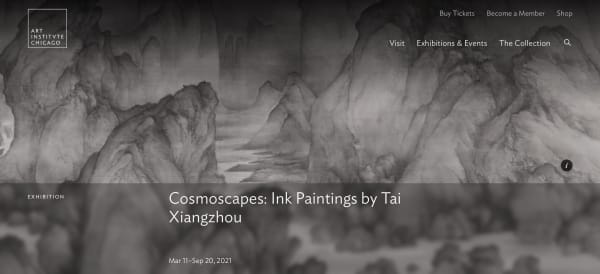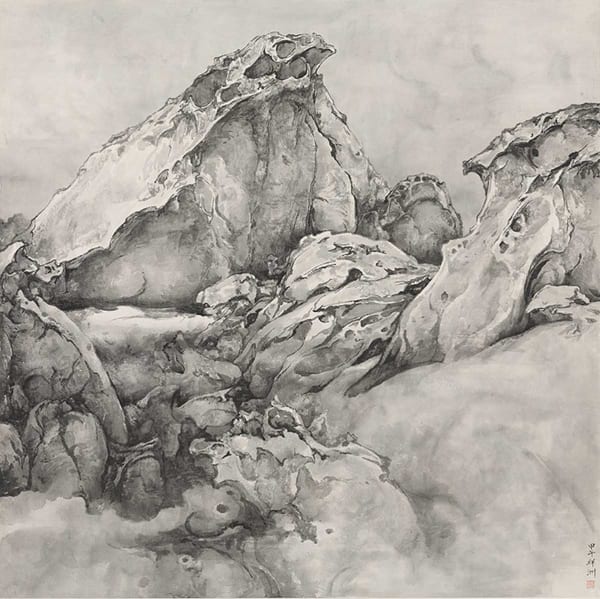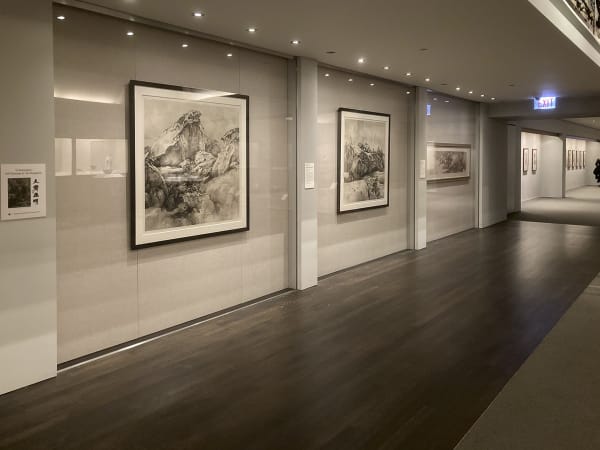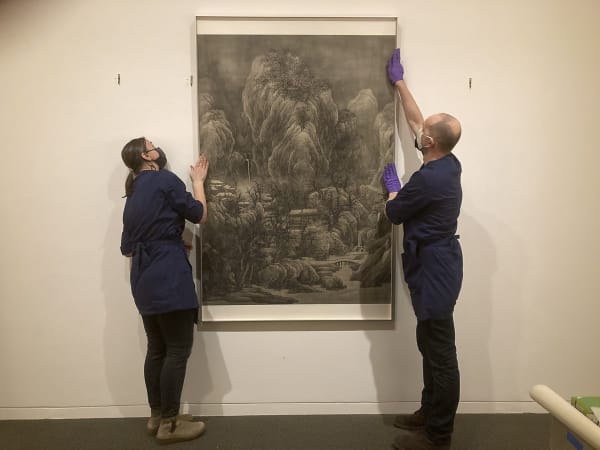Virtual Member Lecture: Cosmoscapes—Ink Paintings by Tai Xiangzhou
Artist Tai Xiangzhou and Tao Wang, Pritzker Chair of the Arts of Asia, curator of Chinese art, and executive director of initiatives in Asia, discuss how Tai’s works reveal a non-Western classical worldview and assert its relevance in our increasingly globalized age. Cosmoscapes: Ink Paintings by Tai Xiangzhou brings together 13 works by the acclaimed artist—including horizontal and vertical scrolls, screens, and album leaves drawn from the artist’s own collection and others in the United States—that together dissolve and even transcend distinctions between the traditional and the innovative. Tai’s extraordinary paintings are not only visual but also visionary, leading the viewer into imaginary realms and inspiring wonder toward the unknown universe.
Cosmoscapes: Ink Paintings by Tai Xiangzhou
Tai Xiangzhou’s solo exhibition Cosmoscapes: Ink Paintings by Tai Xiangzhou will open at the Art Institute of Chicago on March 11, 2021. The show will last till September 2021. The exhibition is curated by Tao Wang, Pritzker Chair of Asian Art & Curator of Chinese Art at the Art Institute of Chicago. Fourteen works by Tai, including horizontal and vertical scrolls, screens, and album leaves, will be on view at the show.
Tai Xiangzhou was born in 1968 to a scholarly family in Yinchuan, Ningxia, the former capital of the Tangut Xixia kingdom (1038-1227). During his childhood, he studied calligraphy with the exiled master Hu Gongshi (1912-1997). He further pursued the study of Chinese traditional culture with the prominent mentor Feng Qiyong (1924-2017). To enhance the depth of his art, Tai proceeded to earn a doctorate from Tsinghua University with the philosopher Bao Lin. As an artist, as well as a scholar, he published his dissertation Celestial Tales, which retells the history of Chinese landscape representations by delving into their origins in classical cosmology, particularly its elaborate systems of correspondence between the celestial, terrestrial, and human realms, earning increasing recognition internationally.
Tai has long concentrated on rejuvenating the idealistic forms of traditional Chinese landscape painting. His dedication to the origin and development of “Mountain and Water Representation” (Shan Shui Tu Xiang) has attracted attention from prominent eyes in the field of art. His artworks are largely based on his artistic ideologies of monumental, classicizing landscapes that envelop the vast scope of contemporary human knowledge and experience. His earlier works faithfully harmonize with traditional landscape painting from Song Dynasty (960-1279), which is a golden age for both pictorial and astral arts. From 2013 on, with plentiful research Tai has done for his doctoral dissertation, he further expands his perspectives of art creations into cosmology, astrology, and how they intertwine with the aesthetics of painting. His reputed series Celestial Tales, and many others, can be found in the collection of the university museums of Harvard, Princeton, and Yale. Because of their ability to invite viewers and readers to interact with them corporeally, ritualistically, Tai’s artworks and scholarly writings are frequently discussed in art history classes at distinguished universities.
In 2015, The Art Institute of Chicago purchased Tai’s Celestial Tales 2014.1. The work can be found in the publication Paintings at the Art Institute of Chicago: Highlights of the Collection. In addition, Tai’s works also appear in the collection of the Freer Gallery of Art, the Minneapolis Institute of Art, the Nelson-Atkins Museum of Art, the Brooklyn Museum, the Asian Art museum San Francisco, the Nasher Museum of Art, the Seattle Art Museum, the Arthur M. Sackler Museum of Art and Archaeology at Peking University, the Museum of the Official Provisional Municipal Council of Macau, the Zhonghua Book Company, among others.








